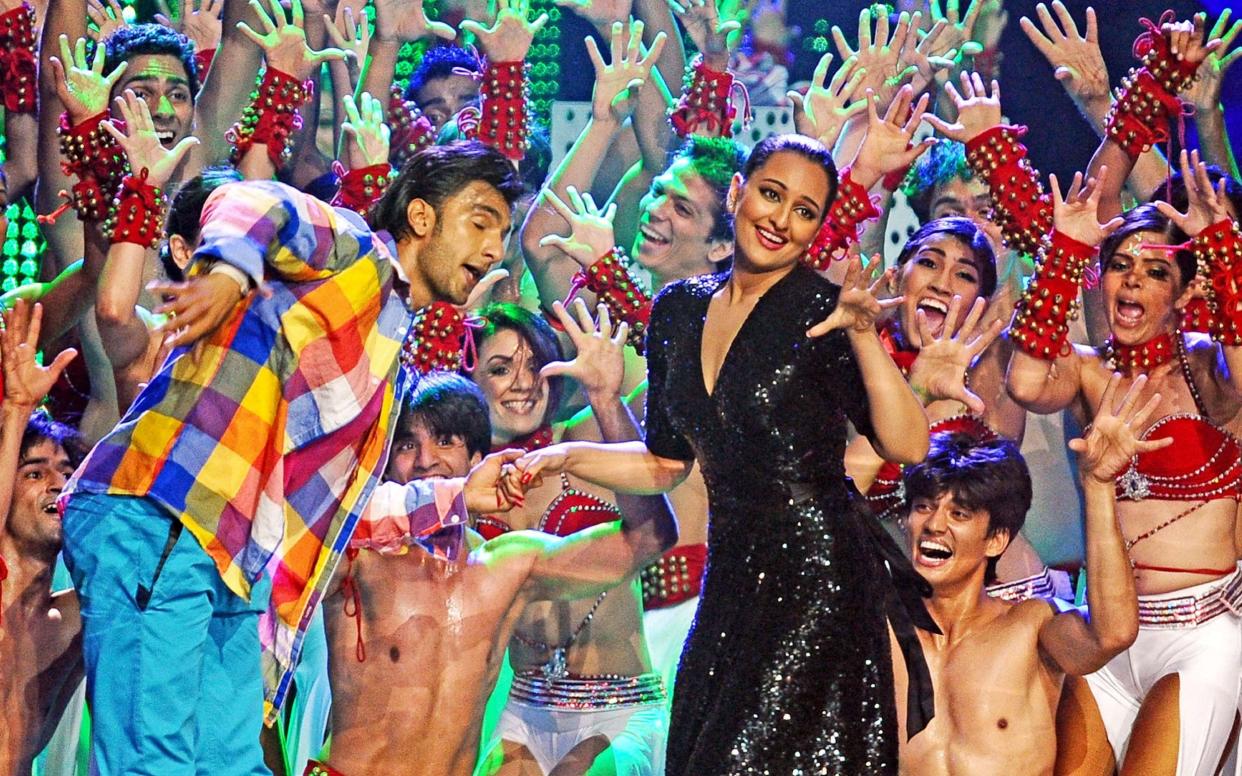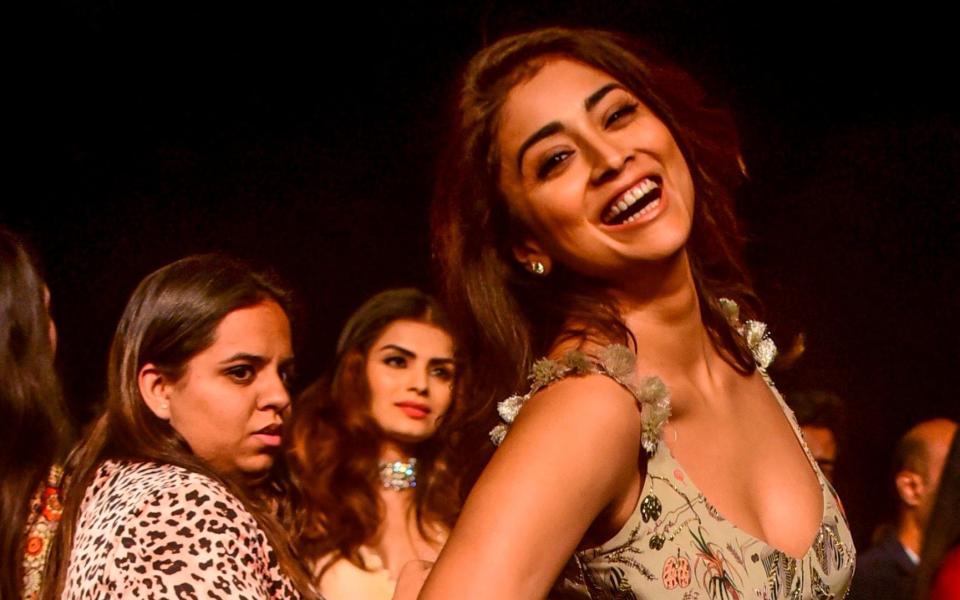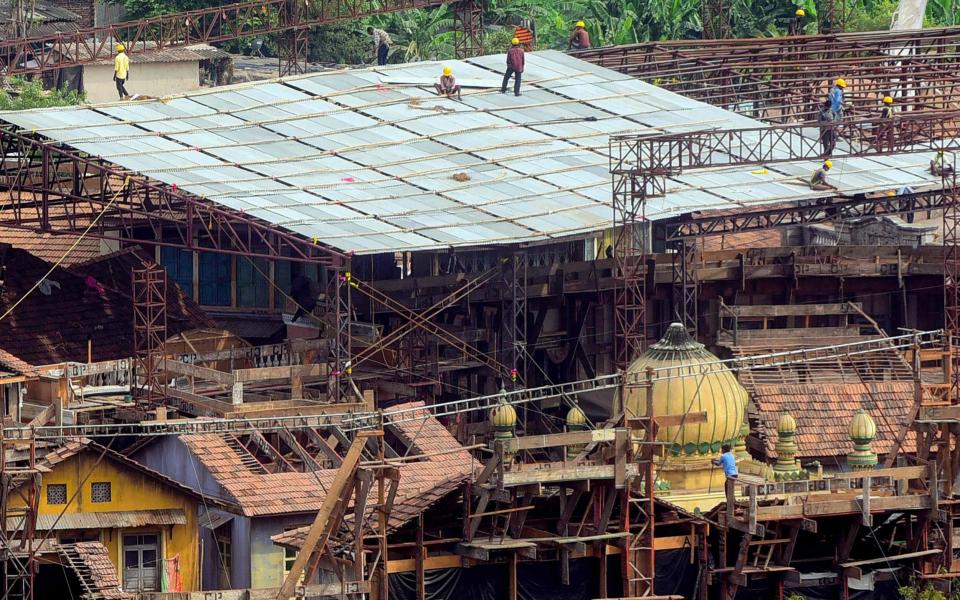No touching, no group dancing and no kissing – Bollywood prepares for life in the coronavirus era

There will be no close-quarters dancing, no touching of hands and certainly no kissing: welcome to Bollywood 2020.
But this is not a return by the giant Indian film industry to the prudery of decades past. Rather, it is an attempt to meet the strictures of social distancing in a country struggling to cope with coronavirus.
The authorities have given the go-ahead for cameras to roll again as India's lockdown is eased, and Bollywood executives have "no doubt" that film production will return to pre-virus levels within months.
However, producers must follow an exhaustive list of rules, including a reduction in the number of crew members, social distancing on set and remote castings. Regular temperature checks will be taken on set by an on-site healthcare professional, with an ambulance made available at all times.
But in one of the biggest – and for audiences most visible – changes, scenes involving close human contact will be cut, for the short term at least: bad news for fans of the legendary Bollywood group dance montage.
Kissing – long a controversial subject in Bollywood films – will also be banned for the foreseeable future. Some have suggested using flower imagery, in a throwback to early Bollywood films, to demonstrate when a couple become intimate.
For dance scenes, the new measures are expected to mean no big group montages because this would break social distancing rules. Instead, there is likely to be just the lead actor and actress, dancing separately and in turn without the usual 20 to 30 backing dancers.
Even before the new guidance was announced, actor-producer Sanjay Suri said: "Cinematic intimacy will take time to return. I can't imagine us sweating and close dancing in a film immediately. We surely will have to reinvent a working style and be cautious."

In whatever form it does return, the reopening of India’s £2.4 billion industry, which usually produces more than 1,500 Hindi-language films every year – double the output of Hollywood – will come as a welcome relief to this movie-mad nation.
"Entertainment and films run through the lifeblood of our nation. The cultural connection between the industry and the psyche of our nation is extremely deep, and it has been that way for generations," explained Vikram Malhotra, the CEO of Abundantia Entertainment, a major Bollywood production house.
"Watching films and discussing film stars is our national pastime, and in India, it is fact [that] we have temples erected for more than half a dozen movie stars.
"These film stars see regular worship by their fans, much like they would worship goddesses, and there can be an elaborate ritual of prayers and celebrations that take place before the launching of a new show."
Indeed, pre-lockdown, an incredible 15 million Indians visited the cinema daily – over one per cent of the entire population.
When Narendra Modi, the Prime Minister, placed India under lockdown on March 25, production sets and cinemas shut as Indians were only permitted to leave their homes to purchase essential groceries and medicines.
Bollywood has lost in excess of £100 million in box office sales alone.
More than 500,000 daily wage labourers working in the industry – stitching exuberant outfits, designing dramatic set backdrops or working as runners for demanding stars – also lost their jobs.
Despite pledges by production houses and film stars to cover wages, many labourers have been without any income for over two months.
On Monday, when the government announced that private businesses were allowed to operate again, the government for the state of Maharashtra published a 16-page document detailing the rules that production houses would have to follow in order to reopen.

Mr Malhotra welcomed the lengthy advice, arguing that it is necessary to protect the health of workers in a manner meaning their livelihoods could also be maintained.
He aims to resume filming in July, once he can ensure that the new guidelines can be followed.
"Where shoots have started, the entire set is being sanitised on a regular basis, we are shooting with an optimum crew and the crew is using face shields, gloves, and other necessary safety equipment," said Punit Misra, the CEO of domestic broadcast business at Zee Entertainment Enterprises, another major Bollywood production house.
Vidya Balan, an actress who was working on the blockbuster Sherni when filming was postponed, also welcomed the new regulations.
"This is probably going to be the new normal for a while, and besides doing the best we can to help each other out during these trying times, I'm looking forward to embracing it and getting back to work and doing what I love," she said.
Although cinemas will remain shut for now, the Multiplex Association of India has proposed a "safe" plan to reopen them from June 30.
This will include the wearing of masks in the cinema, the use of e-tickets and seats between families being left empty.
Even in lockdown, Bollywood has been plunged into controversy, with superstars like Priyanka Chopra and Disha Patani prompting an unusual public backlash after they spoke out against the killing of George Floyd by police in the United States.
Indians responded on social media by questioning why the actresses had not condemned Islamophobic attacks their own country.
"Priyanka Chopra wants to end racism in the US, but is just fine with the blatant Islamophobic attacks in India," wrote one user.
Whilst others were also quick to point out that both Ms. Chopra and Ms. Patani advertise skin fairness creams, these criticisms are unlikely to impact Indians' long-term love of cinema, and Mr Malhotra said it won't be long before cinemas are packed again.
"There is no doubt demand will return to 100 percent levels in a country like India, which is entertainment crazy," he said.

